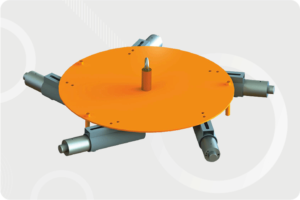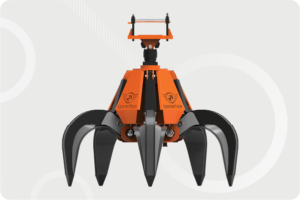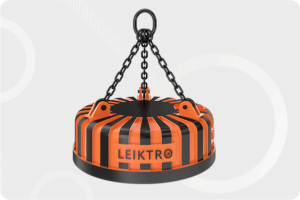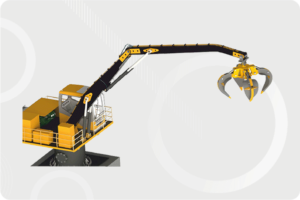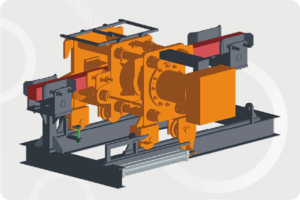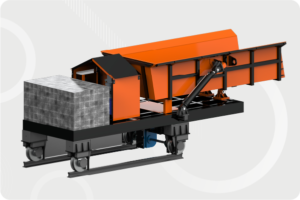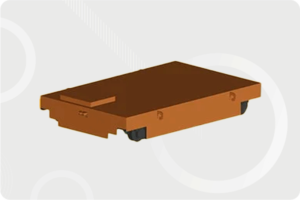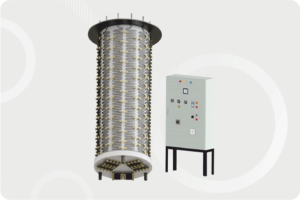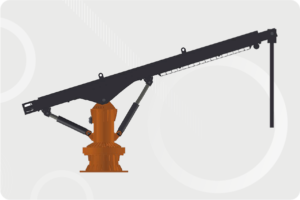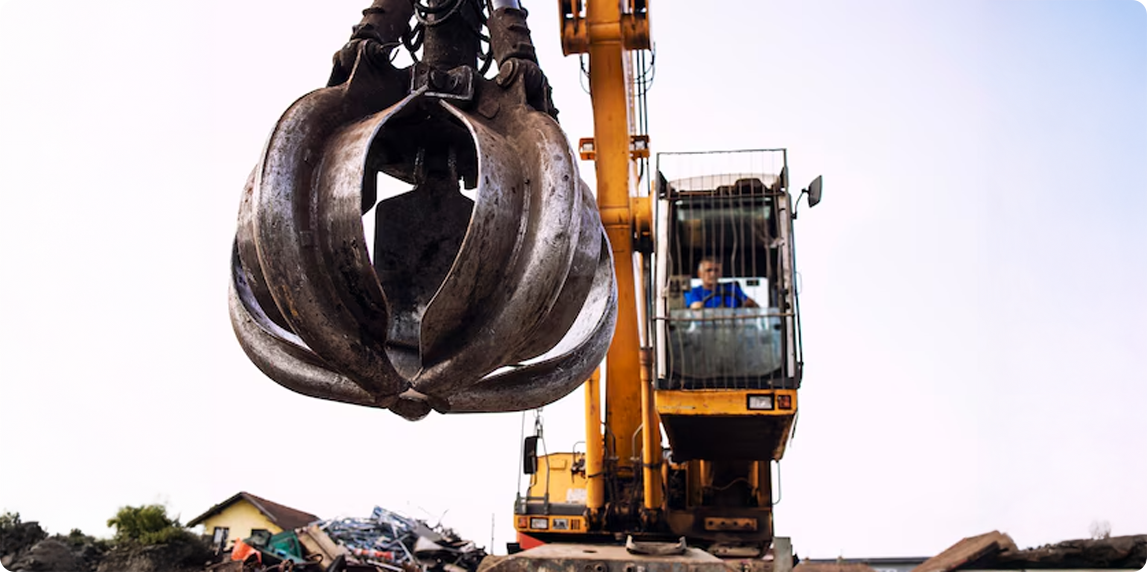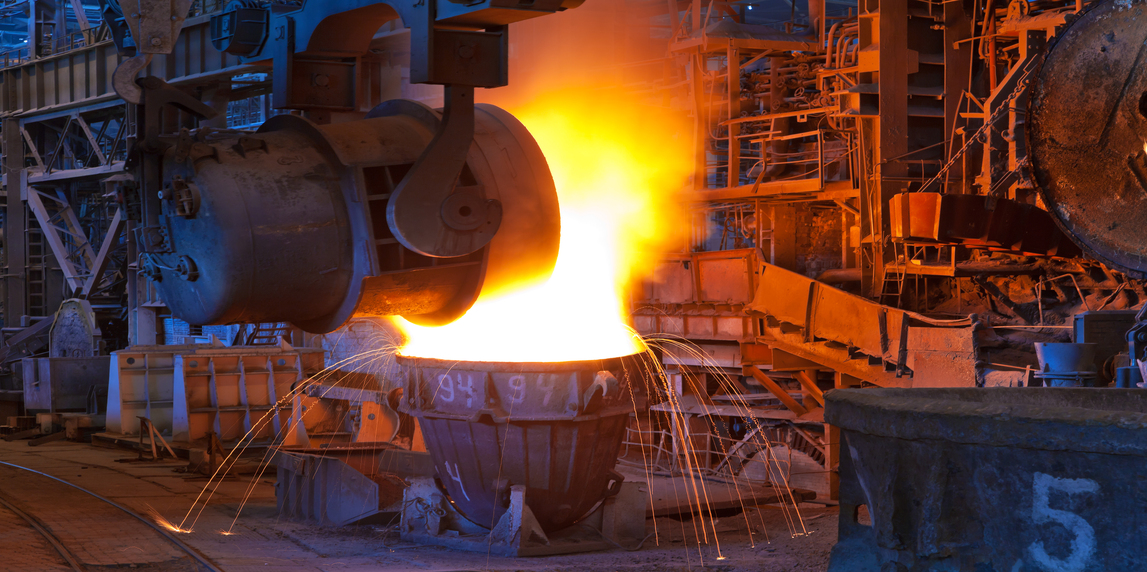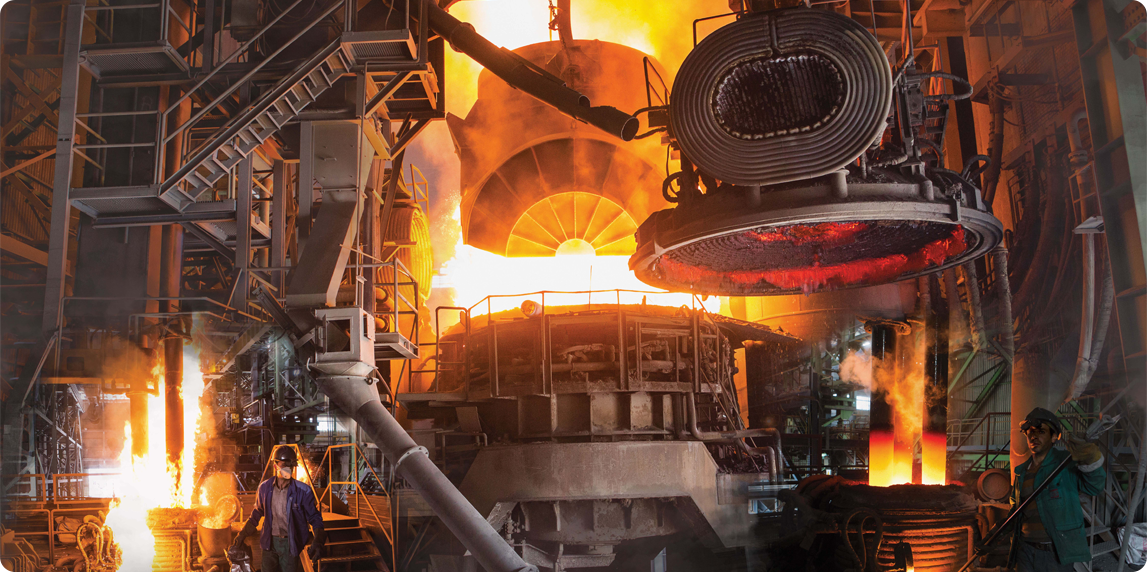
Heavy industries like steel production and foundries are traditionally associated with high energy consumption and significant environmental impact. However, the rise of sustainable manufacturing practices and eco-friendly technologies is helping these industries reduce their carbon footprint while maintaining efficiency and profitability.
Key Strategies for Sustainable Manufacturing

Energy-Efficient Machinery
Modern equipment is designed to consume less energy without compromising performance. Examples include: Smart Furnaces: Advanced induction and arc furnaces optimize energy usage by using AI to adjust heating patterns, reducing wastage.LeisterTech’s Hydraulic Pushers: Built with energy-efficient systems to minimize power usage while maintaining high precision.
Adopting Renewable Energy Sources
Using solar, wind, and bioenergy for powering manufacturing units is becoming a viable alternative. For instance, many steel plants are integrating solar panels into their operations to offset energy requirements.
Recycling and Circular Economy
Recycling scrap metal and reusing byproducts reduces the need for raw material extraction and minimizes waste. LeisterTech’s Scrap Transfer Trolleys facilitate efficient recycling by streamlining the movement of reusable materials.
Water Conservation Techniques
Technologies like closed-loop cooling systems recycle water in manufacturing processes, cutting down on consumption and preventing pollution.
Process Optimization through Automation
Automation not only enhances productivity but also reduces resource wastage. IoT-enabled systems continuously monitor operations to optimize energy usage.
Eco-Friendly Innovations by LeisterTech
LeisterTech demonstrates how heavy industries can adopt sustainable practices without sacrificing efficiency:
Energy-Efficient Shearing Machines
Smart Material Handling Equipment
Advanced Lining Vibrators
Benefits of Sustainable Practices in Heavy Industries
Industry 4.0 represents a paradigm shift where smart technologies enable fully automated, interconnected production environments. Benefits include:

Reduced Carbon Emissions
Switching to energy-efficient equipment and renewable energy sources significantly lowers greenhouse gas emissions.

Cost Savings
Energy-efficient machinery reduces operational costs in the long run, providing a financial incentive for adopting green technologies.

Compliance with Environmental Regulations
Industries adhering to sustainability standards avoid penalties and gain recognition as environmentally responsible organizations.

Enhanced Brand Reputation
Commitment to sustainability improves stakeholder trust and aligns businesses with consumer preferences for eco-conscious brands.
As the global focus on climate change intensifies, innovations such as green hydrogen in steelmaking, carbon capture technologies, and AI-driven waste management are likely to become standard in heavy industries. Companies like LeisterTech are leading the way by developing equipment that aligns with these forward-looking strategies.
Sustainable manufacturing is no longer a choice but a necessity for heavy industries. By investing in energy-efficient machinery, embracing recycling, and leveraging renewable
lpipl
lpiplYou Might Also Like
- lpipl
- 0 Comments
- lpipl
- 0 Comments
- lpipl
- 0 Comments


